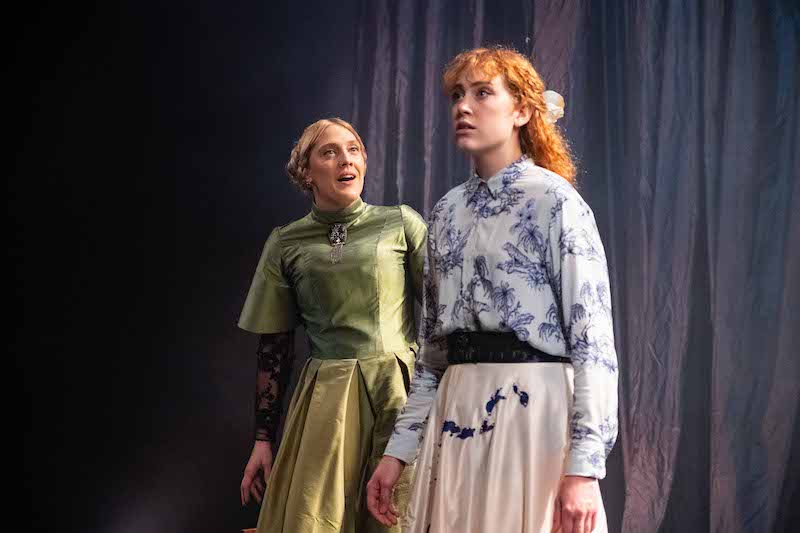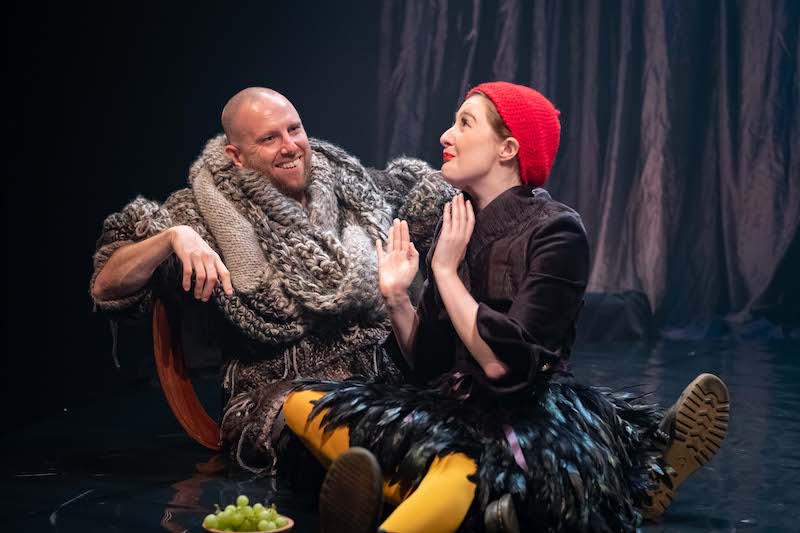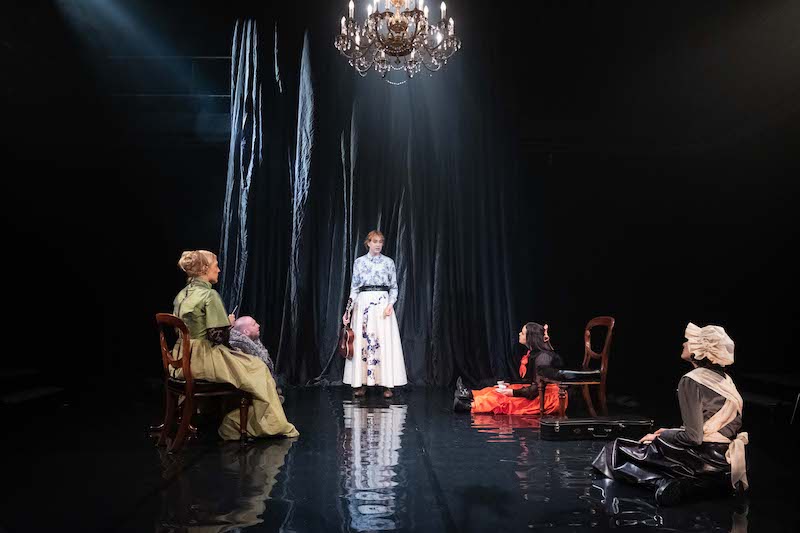The Moors by US writer Jen Silverman is set in an isolated house on the wild, desolate, foreboding moors – a world familiar to us from the novels of the Brontë sisters. Many of the tropes from Jane Eyre and Wuthering Heights are referenced, but have been given a feminist, queer twist in this fantastical, subversive satire on the Victorian gothic romance.
 Romy Bartz and Brielle Flynn. Photograph © Clare Hawley
Romy Bartz and Brielle Flynn. Photograph © Clare Hawley
The very proper and professional Emilie (Brielle Flynn) arrives to take up a position as a governess having been corresponding with Branwell (the name of the Brontë’s brother), the head of the household, whose letters have made her heart flutter. Greeted instead by his steely sister Agatha (Romy Bartz), she discovers that the dissolute Branwell is locked up in the attic, and there is no child in sight. There seems to be one maid (Diana Popovska) who answers to different names – Marjory in the parlour and Mallory in the scullery – while Agatha’s dizzy, younger sister Huldey (Enya Daly) is obsessed with the idea of fame, and spends her days scribbling her thoughts in a diary.
In a surreal touch, there’s also a talking, philosophical mastiff (Thomas Campbell) who falls in love with a moorhen (Alex Francis). The bird may not have much of a memory but instinct tells her to beware of the dog no matter how much he professes his adoration. Meanwhile, as Emilie gradually falls under Agatha’s spell, the maid gets in the ear of the impressionable Huldey. The results are not pretty.
 Thomas Campbell and Alex Francis. Photograph © Clare Hawley
Thomas Campbell and Alex Francis. Photograph © Clare Hawley
The Moors premiered in the US in 2017 and is directed here by Kate Gaul for Siren Theatre Co, staged in association with the Seymour Centre as part of the 2019 Mardi Gras Festival.
Gaul (who also designed the set) stages the play on a round, shiny black revolving stage, which spins slowly for much of the production. Backed by a dark drape, with a spectacular chandelier overhead, the props consist of a few chairs and little else. Eva Di Paolo’s costumes reference the period, though the actors speak in their natural voice rather than donning an English accent.
Gaul has added two rows of bleacher seats on either side of the stage to heighten the intimacy between the audience and the world of the play, while Nate Edmondson’s sound and Fausto Brusamolino’s lighting underpin the action with an unsettling, haunting quality.
 Romy Bartz, Brielle Flynn, Enya Daly and Diana Popovska. Photograph © Clare Hawley
Romy Bartz, Brielle Flynn, Enya Daly and Diana Popovska. Photograph © Clare Hawley
There are strong performances from all the cast, with Bartz anchoring the piece as Agatha, bringing a truthfulness, subtle restraint and perfect comic timing to the chilly, forceful character, which keeps her feeling dangerous but real.
Smartly written by Silverman, The Moors is a strange, darkly playful piece that comments on the frustrating, repressive life faced by most women in the Victorian era, when they had so little power and so little to keep them occupied. At the same time, it gets you thinking about women’s situation today. In the end, it may not be the most powerful piece of drama, but it’s funny, surprising and intriguing.
The Moors plays at the Seymour Centre until March 1











Comments
Log in to join the conversation.